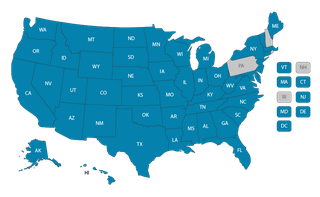Report Materials
For a covered outpatient drug to be eligible for Federal reimbursement under the Medicaid program's drug rebate requirements, manufacturers must pay rebates to the States for the drugs. However, a prior OIG review found that States did not always invoice and collect all rebates due for drugs administered by physicians.
Our objective was to determine whether the Ohio Department of Medicaid (State agency) complied with Federal Medicaid requirements for invoicing manufacturers for rebates for physician-administered drugs.
Our review covered physician-administered drug claims paid by the State agency between January 1, 2012, and December 31, 2014.
We used the Centers for Medicare & Medicaid Services' (CMS) Medicare Part B crosswalk to identify, if possible, the National Drug Codes (NDCs) associated with each Healthcare Common Procedure Coding System (HCPCS) code listed on claims from providers. We then used the CMS Medicaid Drug File to determine whether the identified NDCs were classified as single-source drugs or multiple-source drugs. Additionally, we determined whether the HCPCS codes were published in CMS's top-20 multiple-source drug listing.
The State agency did not always comply with Federal Medicaid requirements for invoicing manufacturers for rebates for physician-administered drugs. The State agency did not invoice manufacturers for rebates associated with $3.6 million ($2.3 million Federal share) in single-source and top-20 multiple-source physician-administered drugs. Because the State agency's internal controls did not always ensure that it invoiced manufacturers to secure rebates, the State agency improperly claimed Federal reimbursement for these single-source drugs and top-20 multiple-source drugs.
Further, the State agency did not submit the drug utilization data necessary to secure rebates for other physician-administered drugs. These drugs were included in claims totaling $6.2 million ($4.0 million Federal share) that did not have NDCs and in claims totaling $195,526 ($128,057 Federal share) that contained NDCs.
In addition, the State agency invoiced manufacturers for rebates associated with $30.5 million ($20.0 million Federal share) in physician-administered drugs after the completion of our fieldwork.
We recommended that the State agency refund to the Federal Government $2.3 million (Federal share) for claims for single-source physician-administered drugs and for top-20 multiple-source physician-administered drugs that were ineligible for Federal reimbursement; work with CMS to determine the unallowable portion of $4.0 million (Federal share) and $128,057 (Federal share) for other claims for covered outpatient physician-administered drugs that were not invoiced for rebates and refund that amount; work with CMS to ensure that rebates associated with physician-administered drug claims totaling $20.0 million (Federal share) that were invoiced after the completion of our fieldwork are appropriately reported to the Medicaid program; work with CMS to determine and refund the unallowable portion of Federal reimbursement for physician-administered drugs that were not invoiced for rebates after December 31, 2014; and strengthen its internal controls to ensure that all physician-administered drugs eligible for rebates are invoiced.
In written comments on our draft report, the State agency partially concurred with our first, second, and fifth recommendations; did not concur with part of our third recommendation; concurred with the other recommendations, and described corrective actions that it had taken or planned to take.
View in Recommendation Tracker
Notice
This report may be subject to section 5274 of the National Defense Authorization Act Fiscal Year 2023, 117 Pub. L. 263.

